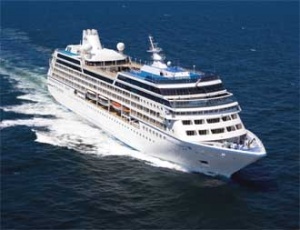Caribbean Cruise Line: Scam artists target tourists most often

The number one crime perpetrated against tourists worldwide is, unsurprisingly, pickpocketing.
According to the Orlando Sentinel, tourist destinations are highly attractive to scam artists and petty thieves. A recent article compiled a list of the most commonly perpetrated travel scams, along with the location where each is most commonly found.
The number one crime perpetrated against tourists worldwide is, unsurprisingly, pickpocketing.
“While travelling, it’s important to watch out for people offering unsolicited help,” advises a representative for Caribbean Cruise Line Scam Watch, a consumer protection organisation. “Scams often involve some form of distraction, so be aware of your surroundings before you turn your attention to someone you don’t know.”
Pickpocketing is prevalent everywhere, but it’s most common in Barcelona, according to the Orlando Sentinel.
ADVERTISEMENT
Taxis are another place to have your wits about you, since they’re commonly used to perpetrate scams. These crimes can vary from unlicensed drivers to overcharging or “long hauling”—where drivers take a longer route than necessary to increase their fare.
Rome has the highest prevalence of crimes involving cabs. Most places have taxi queues where licensed cabs wait for fares. Always use a taxi from one of these lines, if you see one.
Another scam has been labeled “The Overly Sympathique Stranger”—this is because it is commonly found in Paris, France. When dealing with different currency and a language barrier, a common trick is for “volunteers” to offer to assist you with using an automated machine. Then, instead of providing you with what you need, they’ll buy something less expensive and pocket the change.
Be wary of anyone who offers help too easily, especially in subway or train stations. Buy tickets ahead of time or through a window vendor at the station.
Another scam often occurs in Bangkok, Thailand. A popular tourist destination in the country is the Grand Palace. Locals sometimes approach tourists, claim that the palace is closed, and steer them to a nearby rickshaw. They offer to take them to another tourist attraction and return them once the palace reopens. The simplest thing to do in this situation is to check whether the location is closed for yourself.
Istanbul, Turkey, and New York City are home to a scam known as “The Math Genius”—it’s often perpetrated by waiters or taxi drivers. Once you’ve paid and are exiting the situation, they’ll claim that they’ve given you too much change, or that the bill you initially gave them wasn’t big enough. If you’re unfamiliar with the currency, you might fall for it.
“The important thing is to remain vigilant in situations where you have to interact with strangers,” says the representative for Caribbean Cruise Line Scam Watch. “Scammers will take advantage of you if you’re tired, confused, or distracted. It’s an unfortunate reality of travel, but if you have your guard up, you should be able to avoid these situations and focus on having fun.”

